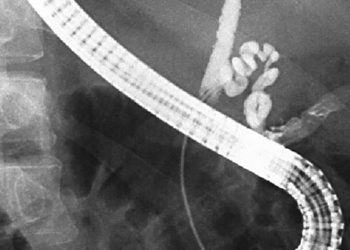Younger sibling presence associated with improved BMI trajectory
1. Children who gained a sibling by first grade had significantly lower BMI z-score (BMIz) trajectories compared to children without siblings by the time they reached first grade.
2. Children without siblings had greater odds of obesity by first grade compared to those with siblings by first grade.
Evidence Rating Level: 3 (Average)
Study Rundown: Obesity continues to be a major health concern among children. While much research has focused on the connections between parenting and obesity, few have considered the role of siblings in the development of obesity. This study is the first to explore the longitudinal relationship between the birth of a sibling and BMI trajectory. BMI z-scores (BMIz) were calculated using height and weight measurements, and the child’s family composition was assessed over time. Children with no siblings by the time they were in first grade were found to be much more likely to be obese compared to those who experienced the birth of a sibling between 36 and 54 months of age. Children who experienced the birth of a sibling by the time they were in first grade had lower BMIz trajectories over time, compared to those who did not have siblings by first grade. Children who gained a sibling between 36 and 54 months of age had the lowest prevalence of obesity. While this study is the first to highlight a connection between the birth of a sibling and lower future increases in BMIz, it is limited by the lack of direct clinical implications of the findings. These results indicate the need to further elucidate this phenomenon to aid in obesity prevention.
Click to read the study published today in Pediatrics
Relevant Reading: Family structure and childhood obesity, early childhood longitudinal study- kindergarten cohort
In-Depth [case-control study]: This study included children (n = 697) recruited from 10 sites in the United States at birth, whose family composition was assessed every 3 months. Participants’ BMIz was calculated at 15, 24, 36, and 54 months of age, as well as in first grade. Overall, children with siblings by first grade had lower overall BMIz trajectory compared with children without siblings by that time. The magnitude of BMIz effect was dependent on timing of siblings. Children who experienced the birth of a sibling between 9 and 24 months ago age did not have a significantly lower BMIz at first grade compared with only-children (0.47 vs 0.51, p = 0.53), though they did have a lower BMIz trajectory. Children who gained siblings between 24 and 36 months of age had significantly lower BMIz at first grade compared with only-children (0.27 versus 0.51, p = 0.04). The same was true for children with siblings gained at 36 to 54 months of age (0.26 versus 0.51, p = 0.03). Gaining a sibling at 24 to 36 months of age compared to 36 and 54 months of age did not result in a significant difference in BMIz in first grade. Prevalence of obesity among children without siblings was 12.8% in first grade, while those with siblings gained at 36 to 54 months had the lowest prevalence, 4.8%.
Image: CC/Wiki/Mcarls
©2015 2 Minute Medicine, Inc. All rights reserved. No works may be reproduced without expressed written consent from 2 Minute Medicine, Inc. Inquire about licensing here. No article should be construed as medical advice and is not intended as such by the authors or by 2 Minute Medicine, Inc.







